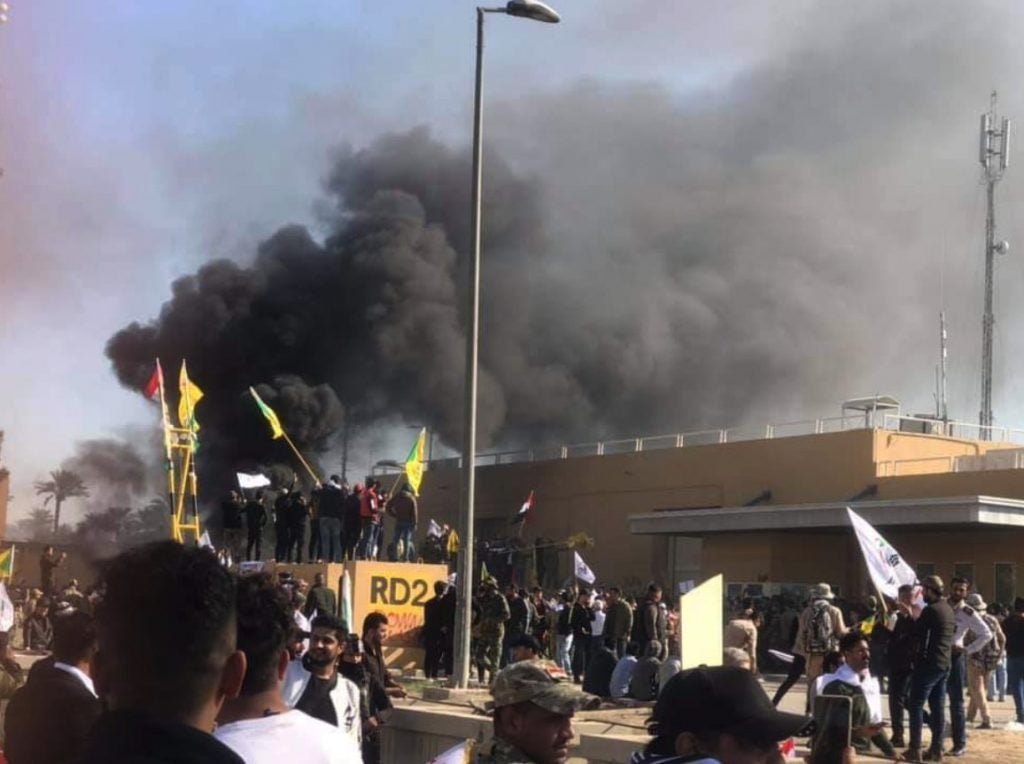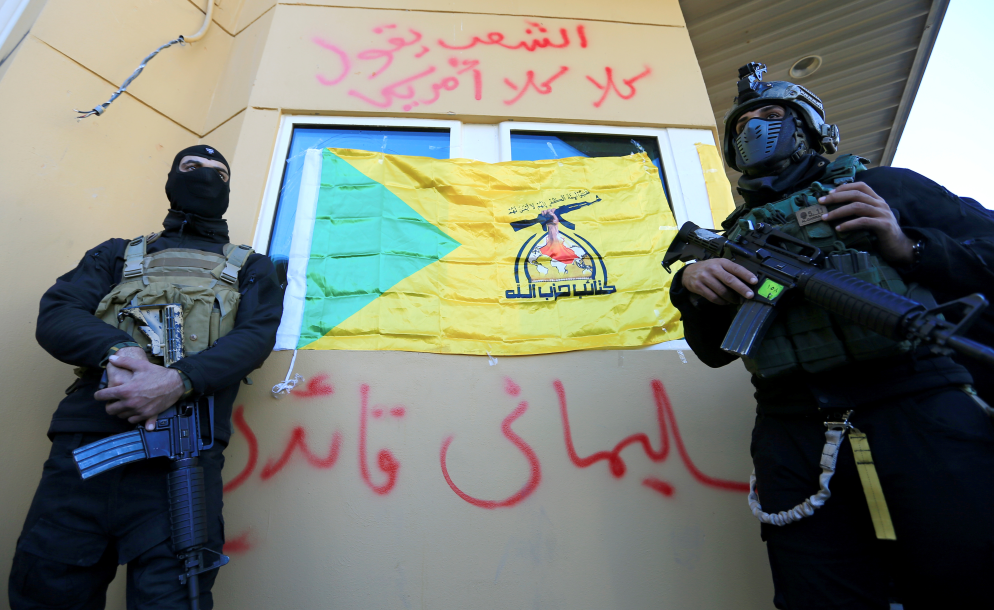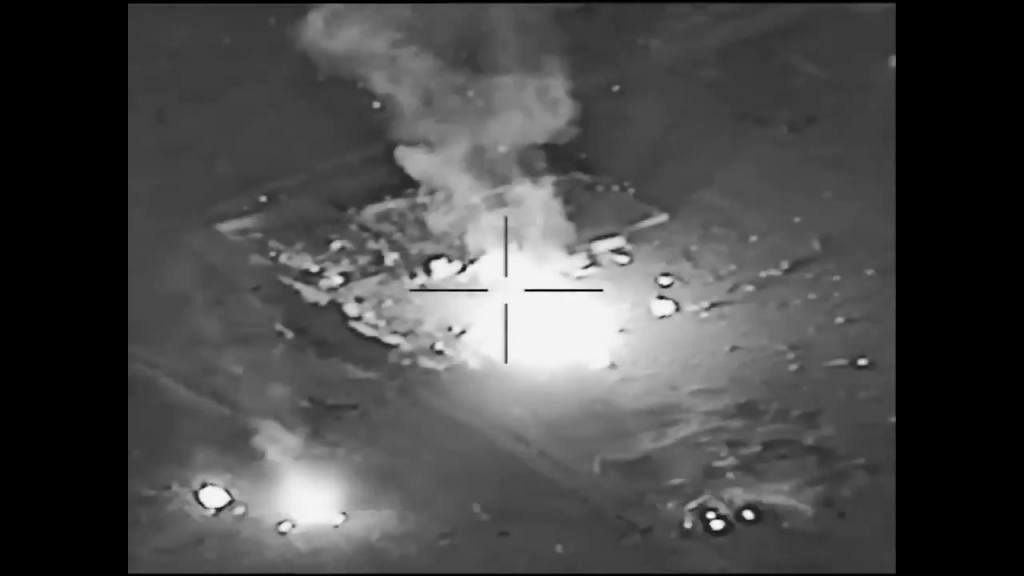US Strikes Kata’ib Hezbollah Bases
The US Air Force struck Kata’ib Hezbollah bases in Iraq and Syria on the 29th December, following a Katyusha rocket attack of over 30 rockets on the K1 military base in Kirkuk. The attack killed a US contractor and injured four US service members and two members of the Iraqi security forces.
Five Kata’ib Hezbollah bases were struck, three in Iraq and two in Syria. According to a Pentagon statement, the bases targeted were weapons storage facilities and command and control facilities used by Kata’ib Hezbollah to target US forces. A Pentagon official stated to CNN that F-15E Strike Eagles were used to carry out the strikes.
Anonymous members of the Iraqi security forces and militias reported that at least 25 members of Kata’ib Hezbollah were killed, and at least 75 more wounded. Reuters’s sources report that at least four local commanders of Kata’ib Hezbollah were killed in the strikes.
Kata’ib Hezbollah, or the Brigades of the Party of God, is part of the Popular Mobilization Units, a collection of paramilitary groups sponsored by the Iraqi government, but trained and supplied by Iran. While legitimized following the collapse of Iraq’s security forces in the face of ISIS’ offensive in 2014, many of the PMUs originate from insurgent groups active in the 2003-2011 insurgency, with Kata’ib Hezbollah in particular being classified by the US State Department as a Foreign Terrorist Organization for repeated attacks on Coalition forces and Baghdad’s Green Zone.
Like many other Iran-aligned militias, Kata’ib Hezbollah has fought in Syria on behalf of the Iran-allied Assad regime against rebel forces. Kata’ib Hezbollah is also known for its involvement in “revenge attacks” and forced disappearances of civilians in territory it holds in Iraq following the territorial defeat of ISIS.

The Iraqi government has responded negatively to the strikes, with Abdelkarim Khalaf, spokesman of the commander of Iraq’s Armed Forces describing them as a “treacherous stab in the back”. Adil Abdul-Mahdi, the outgoing Iraqi Prime Minister, described them as a violation of Iraqi sovereignty, and announced a three day mourning period for those killed in the strikes.

Following the strikes, members of Kata’ib Hezbollah and other Iran-linked militias attempted to break into the US Embassy in Baghdad’s Green Zone. The militia members faced negligible resistance from Iraqi security forces compared to the brutality faced by peaceful anti-government protesters at Baghdad’s Tahrir Square, where they have been subject to live fire and kidnappings as part of a crackdown orchestrated by Iran. Individuals in what appeared to be Iraqi security forces uniforms were photographed vandalizing the outside of the embassy as well.
In response to the attempted break-in, embassy security deployed tear gas and rubber bullets to disperse the militia members. Two American AH-64E Apache Guardian attack helicopters were sent to overfly the embassy compound to monitor the situation, and the security contingent was reinforced by US Marines of the Special Purpose Marine Air-Ground Task Force — Crisis Response —Central Command. A battalion of the 82nd Airborne Division’s Immediate Response Unit is being deployed to the region, with the Pentagon stating that additional troops are being prepared for deployment as well.
Popular Mobilization Unit commanders ordered the dispersal of the militia members on New Year’s Day as news of the troop deployments spread. The militia members had previously camped overnight outside the embassy compound, with senior leaders of the militias and politicians close to them present among them. The Iraqi military stated that all militia members had departed the compound area by evening. Consular services at the US Embassy have been shut down following the break-in attempt.
The strikes and their response once again highlight the near-total extent to which Iran has captured Iraq’s state institutions, as well as Iran’s willingness to hold on to its control of them. While Iraqi popular sentiment has turned against Iran and the Iraqi ruling class it underwrites, as increasingly evidenced by street protests throughout the nation, the legacy of ill-conceived US policy that allowed Iranian influence to fester to begin with means that the US will have to tread carefully.

